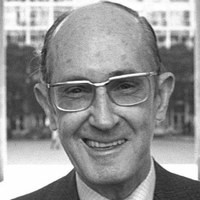Itabira, 1902 – Rio de Janeiro (Brasil), 1987
By Flávio Aguiar
The writer from Minas Gerais is regarded by critic Antonio Candido as the greatest Brazilian poet of the 20th century. A public servant, he managed to develop an intense literary activity and gain international recognition. He renewed the aesthetics of national lyric poetry through a language capable of combining humanistic reflections with a social focus. Among dry, ironic, erotic texts, he points to the tragic feeling of the world (Reunião – 10 books of poetry, 1969). In 1925, he founded A Revista with João Alphonsus and Martins de Almeida, and the following year took over the editorial office of Diário de Minas of the Minas Republican Party.
In the 1940s, he joined the team of the newspaper A Manhã, the official organ of the Estado Novo regime, under the direction of Cassiano Ricardo. His interaction with communist intellectuals increased when he was invited by Luiz Carlos Prestes to direct the newspaper Tribuna Popular, which brought him closer to the Brazilian Communist Party. Later, he distanced himself from both the Party and its publications. His political stance did not prevent him from maintaining relations with Orígenes Lessa, Astrojildo Pereira, Otto Maria Carpeaux, who gathered around publications of diverse tendencies, including the magazine Literatura.
Opposed to various forms of oppression, alongside poets like the Chilean Pablo Neruda, his literature establishes a fertile dialogue with contemporary history, influencing generations of writers of different aesthetic and ideological leanings. A reader of Machado de Assis and Murilo Mendes, he published the poetry book Sentimento do mundo in 1940 and, five years later, A rosa do povo, one of his most important works, which, according to critic Silviano Santiago, brings “humanity without social and economic hierarchies.”
A short story writer, the lyrical marks of his prose led to the adjective drummondiano in Brazilian letters. Shaping historical memory through everyday life, he made the chronicle (Fala, amendoeira, 1957) a major genre alongside Rubem Braga, Luís Fernando Veríssimo, and Roberto Drummond. In 1944, he gathered essays and chronicles in Confissões de Minas. By contemplating the universal and the particular, his texts are imbued with the Minas Gerais landscape, and its religious, political, and cultural traditions, and have been adapted into other arts, as with his poem “Viagem na família,” which served as the basis for the musical composition Poema de Itabira by Heitor Villa-Lobos.
In the late 1950s, his translation of Doña Rosita la soltera by Federico García Lorca was staged, a work he pursued throughout his life, inspired by the feeling of “enchantment” before the Spanish version of his poem “A máquina do mundo.” He also published children’s books (O elefante, 1983).
Chosen as the theme for parades of two Brazilian samba schools, his work reached popular recognition outside academic circles in the 1980s. Defying the trend toward isolation, he took part in many celebrations of his literature when he turned 80 in 1982. His only daughter, Maria Julieta, was a poet. Other works include Claro enigma (1951); Boitempo & A falta que ama (1968); Corpo (1984).



